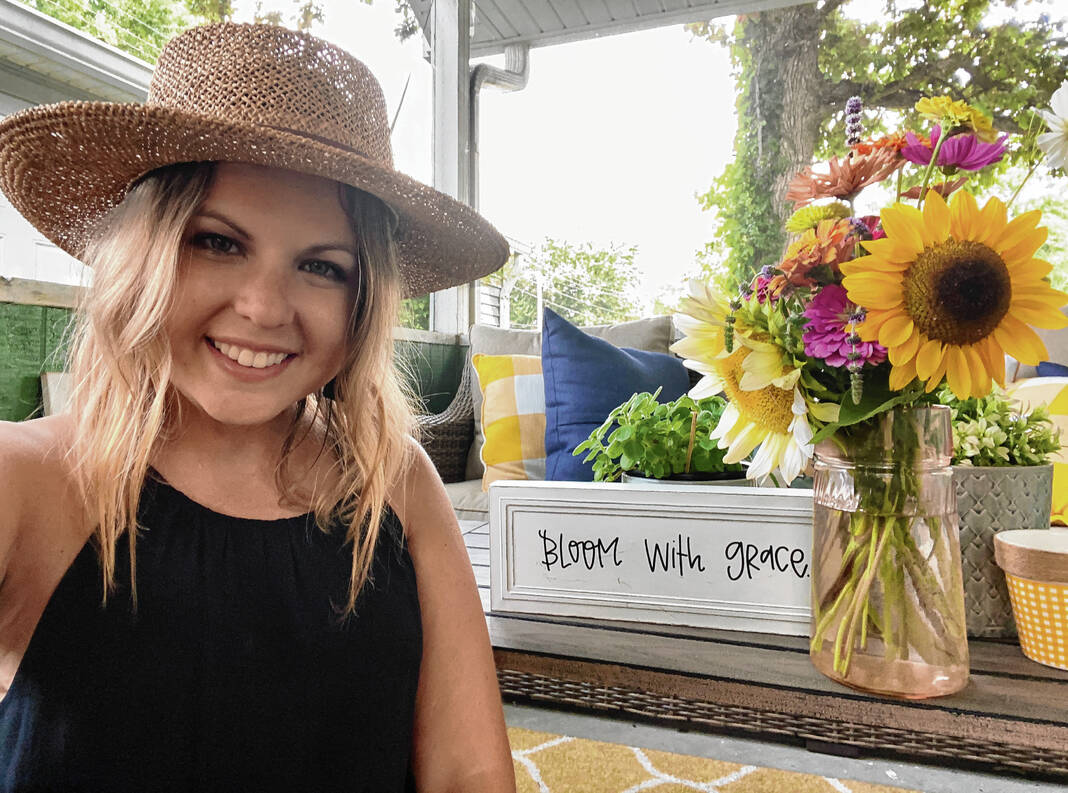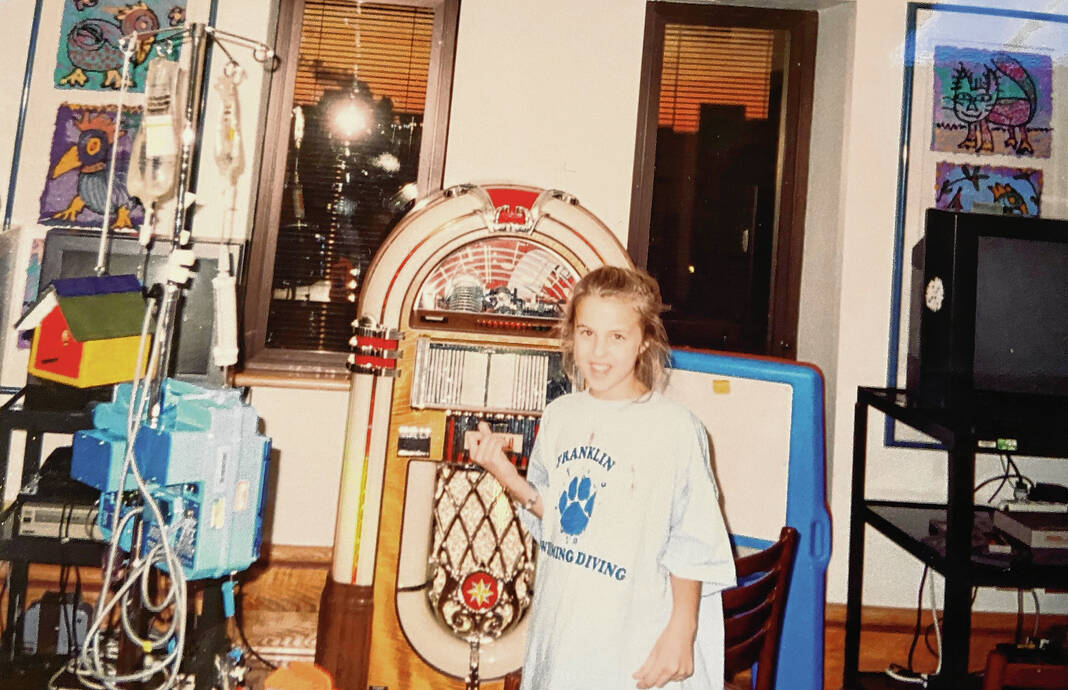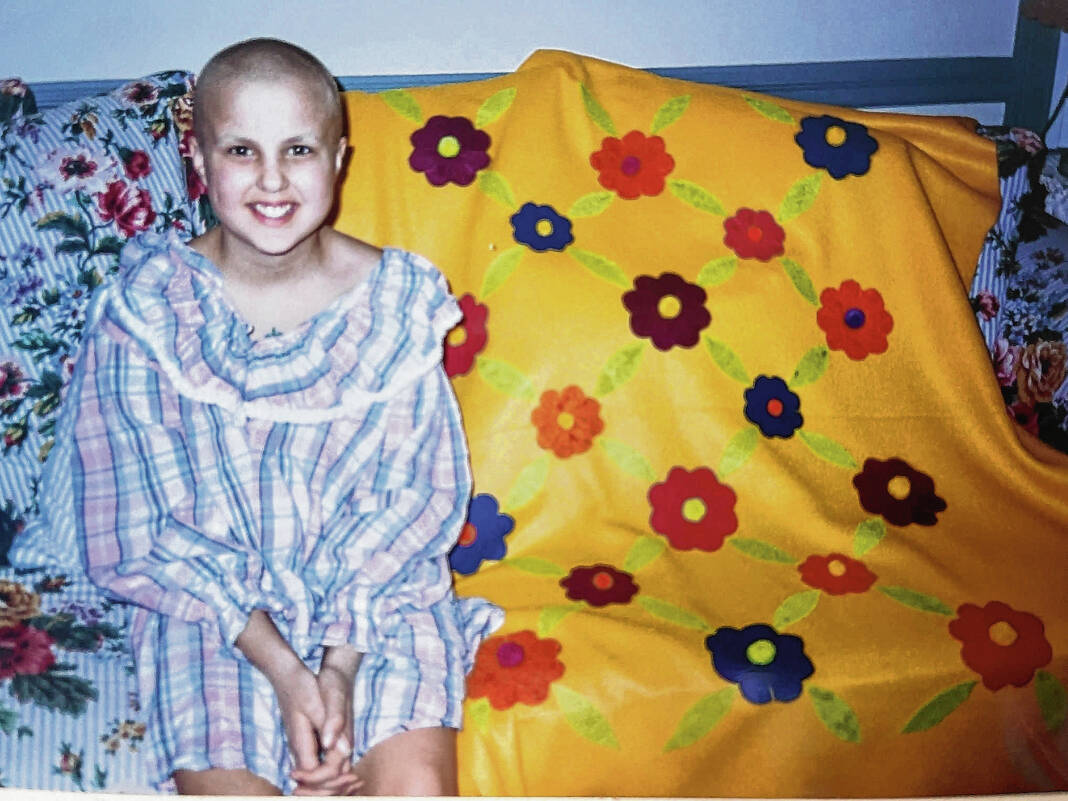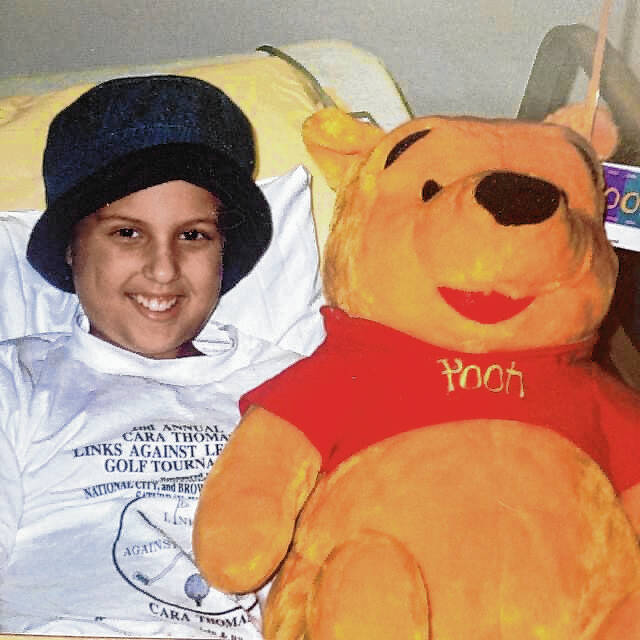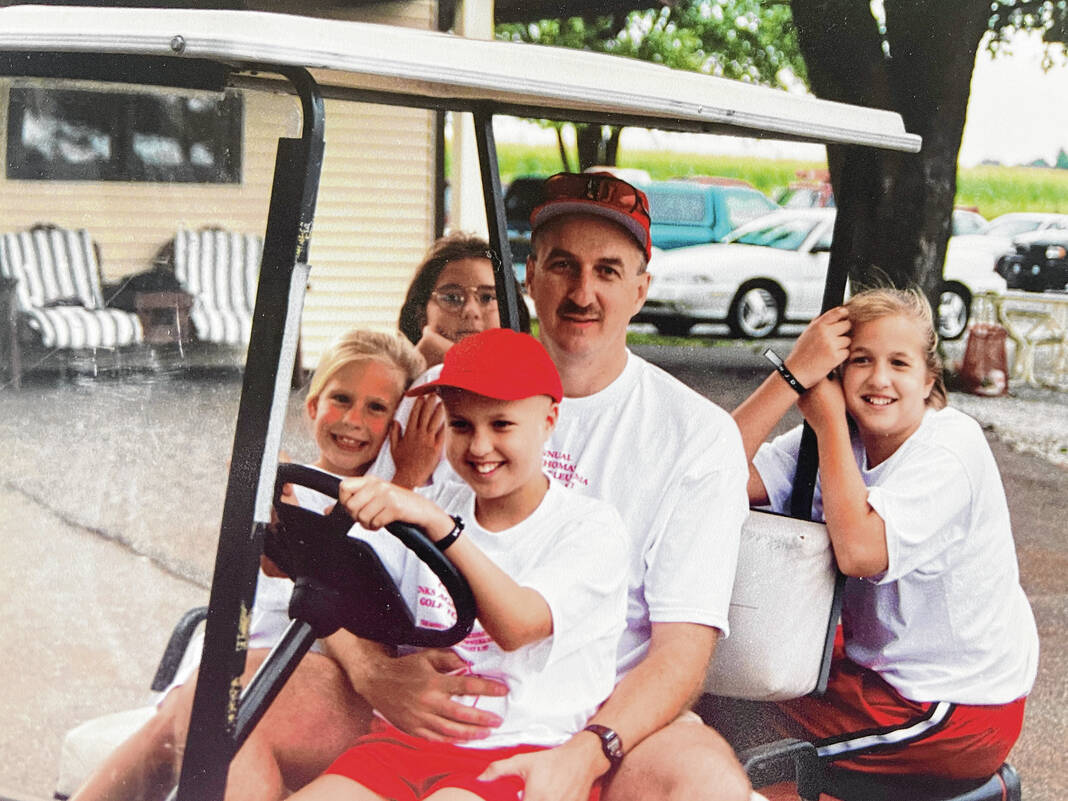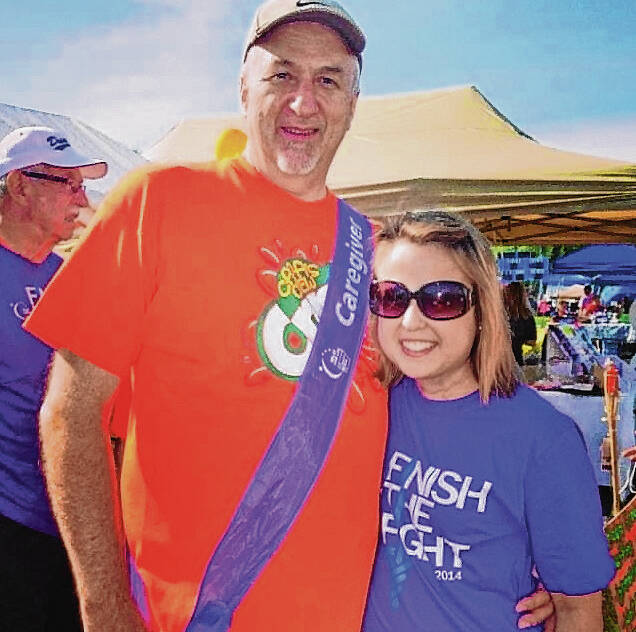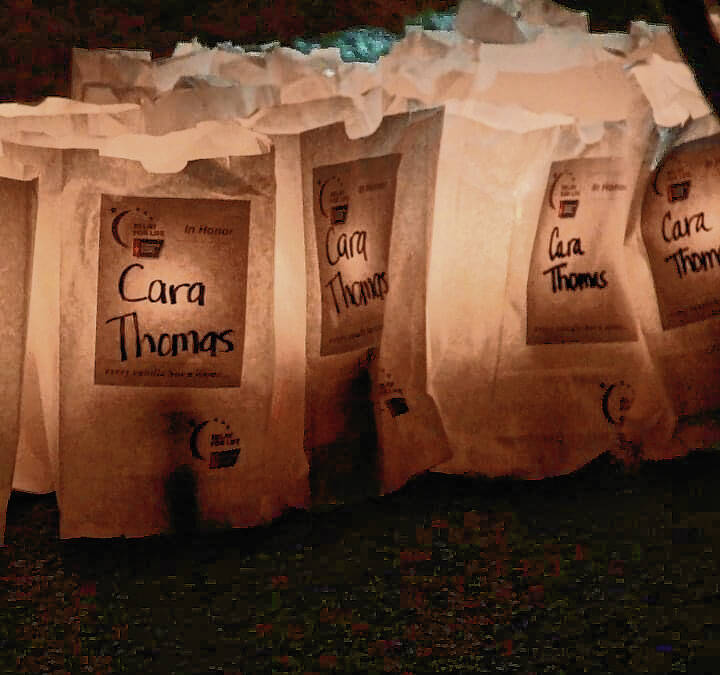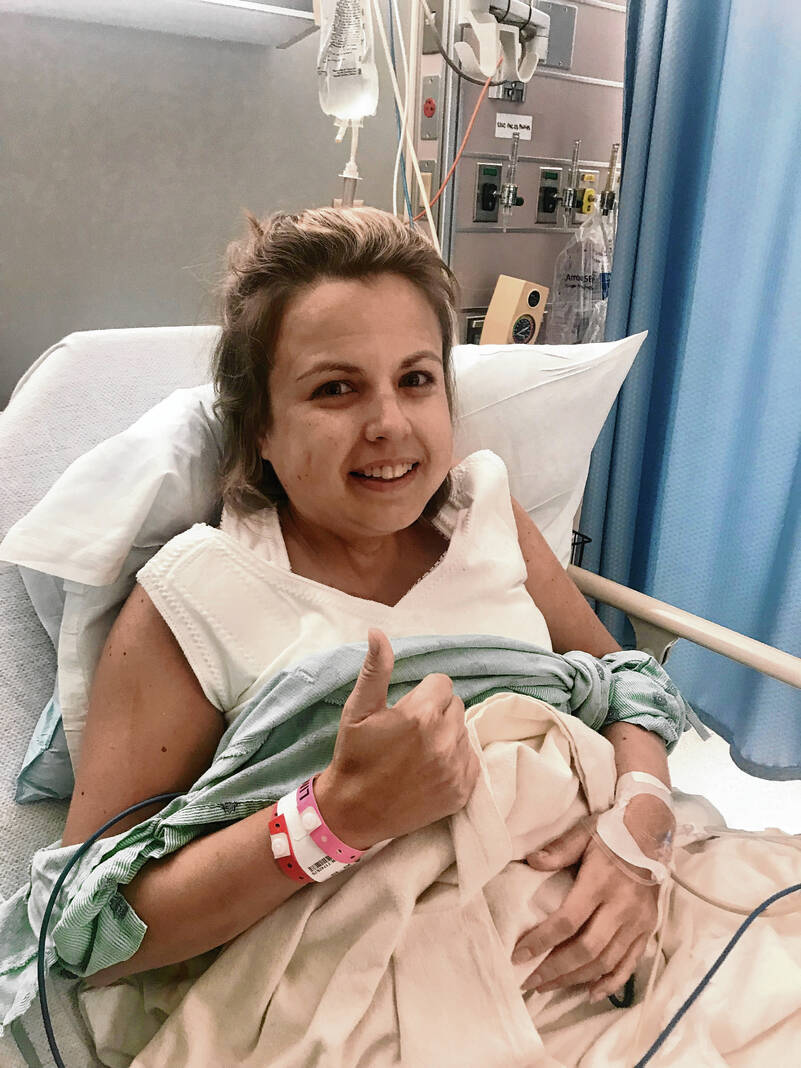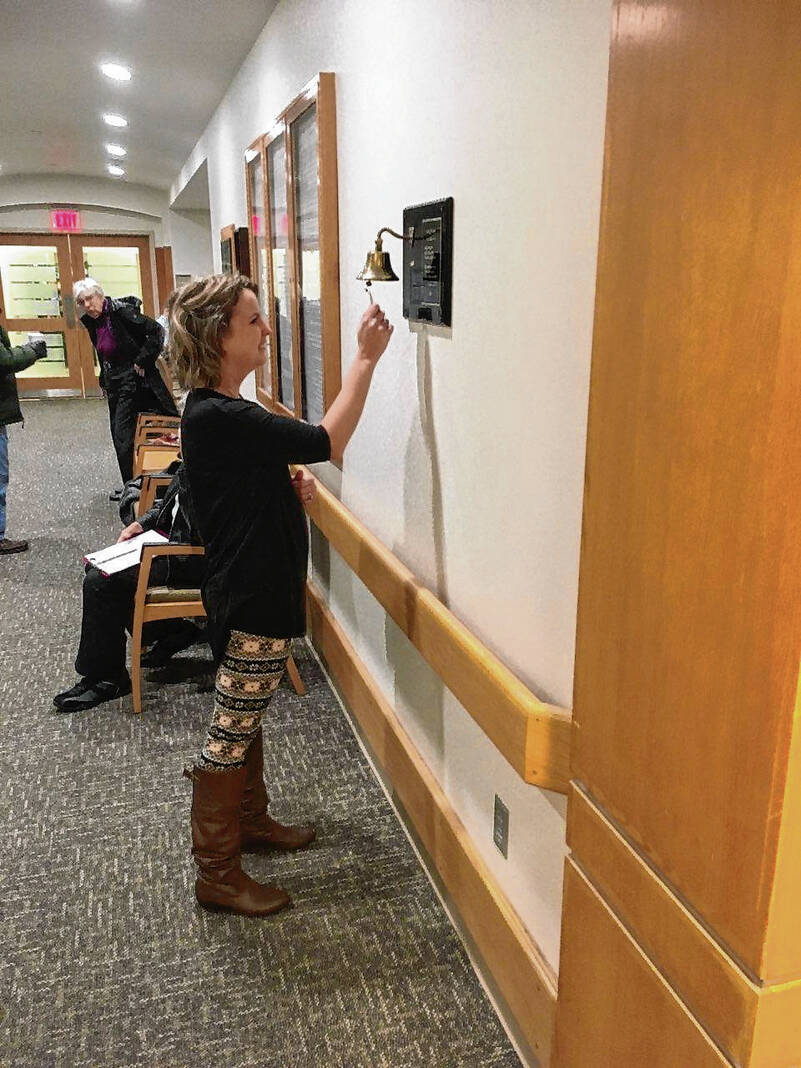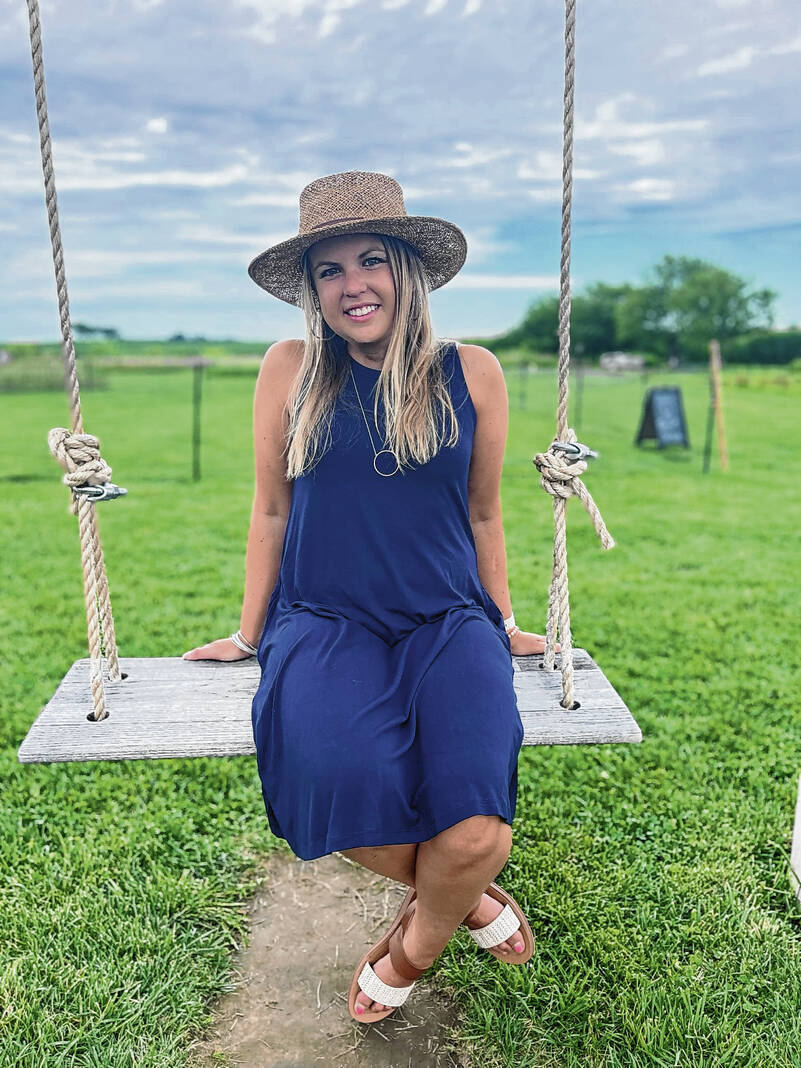Editor’s note: This story is a teaser ahead of the publication of our Brave Hearts cancer awareness special section on Thursday.
Faith was all that stood against despair.
When Cara Thomas was diagnosed with leukemia as a 9-year-old, and then suffered a recurrence just a year later, she was certain that God would help her through it. The thyroid cancer she developed in her early 20s, just as she was about to start a career, only encouraged her to put her life more fully in God’s hands.
Breast cancer, a benign brain tumor and a fractured back could not make her waver.
Thomas has endured more than imaginable in her 35 years. The radiation treatment she needed to survive her initial bout of leukemia has done irreparable damage to the rest of her body, and led to a cascading series of medical conditions that continue today.
“It all seems so unbelieveable,” said Lori Thomas, her mother. “It’s been so difficult over the years watching all of these life-threatening illnesses that she’s had. But I can say that, her dad and I have always been amazed at the way she lives her life. She’s so full of love and happiness.”
The fact she is alive at all is a testament to her unwavering belief that God is holding her life in his hands.
“My Relay for Life team, we had a Bible verse — ‘With God, nothing shall be impossible.’ I think my life shows that,” Thomas said.
‘It was terrifying’
In 1997, Thomas came down with a mysterious illness that she could not shake.
Her mother is a nurse, and she took her daughter into the pediatrics office where she worked to have her examined. They ran tests and took blood, trying to identify the cause of her illness.
Though young, Thomas had a sinking feeling about her condition.
“The weird thing was, even though I was 9 years old, I knew too much. I had watched the St. Jude telethon the night before, and had also finished reading a book, that was probably too old for me to read, called, ‘Six Months to Live,’ about a girl who has cancer,” she said. “So when the doctor called, even before he said anything, I ran upstairs crying because I knew what was going on.”
The doctor suspected it could be leukemia, and Thomas and her family were sent to Riley Hospital for Children at IU Health for further examination. After removing a small amount of bone marrow, doctors confirmed she had acute lymphocytic leukemia, a cancer that infects the bone marrow and can enter the blood, traveling throughout the body.
“It was terrifying,” she said.
To treat the leukemia, Thomas went through an intense, year-long burst of chemotherapy. That gave way to “maintenance” chemotherapy, or drugs meant to prevent the recurrence of cancer.
“She just amazed me in the strength she had. A lot of times, she was giving us strength when we were trying to be there for her to give her strength,” said Tim Thomas, her father.
The family thought they were on the downward slope of treatment. Thomas felt good; she was about to start sixth grade, and they all took a trip to Hilton Head. When they returned, Thomas had a follow-up appointment.
“I wanted to show off my tan, tell them all about what we did while we were down there, and again, the doctors were like, ‘Something is not right,’” she said.
Another round of testing showed the leukemia was back. Because she was still on chemotherapy, the situation was dire and her options were limited.
Her best chance was a bone marrow transplant. In an outpouring of support, more than 300 people came to Johnson Memorial Hospital in 1998 to be tested for compatibility as a marrow match.
No one was a perfect match, even in the national directory. But doctors were able to take immature red blood cells from the umbilical cord of a newborn infant.
“I basically had as much chemotherapy as I could take without it killing me, and total-body radiation to kill off my bone marrow, since the cancer was there,” Thomas said. “I had lain on this board to get the radiation, but they had to stop halfway through so I could throw up.”
With her bone marrow wiped out, new cord blood stem cells were injected into her bones. Over the next six weeks, Thomas was isolated in her room at Riley.
“I spent the whole time making all kinds of crafts, decorating my room for Christmas. Then I crashed, and I was so, so sick,” she said.
Though Thomas was able to leave the hospital in January 1999, she developed graft vs. host disease, which means the new red blood cells attacked her body. High doses of steroids were able to cure the disease, but once she was taken off the drugs, it caused excruciating pain in her hips.
She had developed avascular necrosis — the blood supply had been cut off to her hip bones, killing them.
Thomas used a wheelchair during middle school because doctors hoped her condition would improve. When it became clear her hips would not heal, she decided to endure the pain and force herself to walk. The condition resulted in the need for two hip replacements during her four years at Huntington College.
Challenges and blessings
While working on her graduate degree in social work at IUPUI, she was assigned to intern at Riley. Because she was transitioning from a patient to a colleague, her doctors suggested they find someone else to carry on her care.
During an appointment with her new endocrinologist, the doctor identified concerning lymph nodes in her neck.
Thomas was diagnosed with thyroid cancer that had made its way into all of the vital structures in her neck. A 14-hour surgery removed about half of the cancer, but doctors were unable to get it all, as a portion of the tumors had attached to her trachea.
Surgeons in both Indianapolis and Louisville declined to perform additional surgeries, citing Thomas’ age and where the cancer had infected.
“At 23 years old, there was a good chance that I’d lose both of my laryngeal nerves and I’d be on a (tracheostomy tube), and I wouldn’t be able to speak for the rest of my life,” she said. “Due to quality of life issues, they weren’t going to take that on.”
The medical teams did assist in connecting the Thomases with a thyroid oncologist at the University of Kentucky, and she had two additional operations. Surgeons removed one of her laryngeal nerves, and warned she might not be able to speak above a whisper.
When she went in for a follow-up, they were amazed.
“Both of my vocal cords were moving, which didn’t make sense, since I didn’t have that nerve,” she said. “The doctor just laughed and said, ‘It doesn’t hurt to have a little help from up high.’”
Despite that, Thomas has since faced a rash of crushing health challenges. Shortly after treatment for thyroid cancer, doctors discovered she had breast cancer, likely a result of the high-dosage radiation therapy that killed the leukemia in her body when she was a girl.
Surgeons performed a bilateral mastectomy, and Thomas was again required to have radiation to kill any remaining cancer cells.
Soon after, she suffered her first seizure.
She had been staying at her parents’ home in Franklin, using their pool for rehabilitation. She doesn’t remember the seizure, but when she woke up one night, her back was throbbing.
“I couldn’t get off the couch. So my parents came downstairs, and they knew there was something legitimately wrong with me,” she said. “They walked me upstairs, and I was sitting on my mom’s bed talking with her, and my words started coming out all garbled and I had another seizure right in front of her.”
An ambulance rushed Thomas to the emergency department, where scans showed she had a fractured back from her initial seizure, and a softball-sized tumor on her brain. Though the mass was found to be benign, it still had to be surgically removed.
She went through a craniectomy, removing part of her skull to remove the tumor, in late October 2019.
Looking forward
For the past three years, Thomas has been free of serious health problems, outside of some minor seizures. She has tried to take advantage of the relatively calm period to work on herself.
Because of the brain tumor and rehabilitation for her back, she was unable to work or drive for six months. She has found work doing marketing online, but would like to return to social work.
“If you had taken one or two of the things she had been through, you would be hard-pressed to believe it. Then when you add the third and fourth and however many things that she’s gone through, she’s been amazing,” Tim Thomas said.
As a little girl, she learned that it was likely she’d never be able to have children due to the severity of the treatment.
“I picked up a book that my parents had that had all of the side effects. So, I read when I was 11-years-old that I’d never be able to have kids, and I just cried and cried, because that’s all I ever wanted to do — be a mom,” she said.
Today, her foremost goal is to be a mother. She has committed to being a foster parent; she was able to foster a young girl when she was 1 month old, and still maintains a relationship with her, six years later.
Adopting a child she’s investigated and feels she would be an ideal candidate for.
Thomas remains steadfast in the belief that her faith saved her life. God not only led her through the repeated health setbacks and life-threatening conditions, but provided her with an ironclad support network led by her parents.
“The amount my parents have sacrificed for me is beyond measure,” she said.
THE THOMAS FILE
Cara Thomas
Age: 35
Diagnosis: Acute lymphocytic leukemia in 1997; relapse in 1998; thyroid cancer, 2010; breast cancer, 2018; benign brain tumor, 2019.
Treatment: Chemotherapy, radiation and bone marrow transplant for leukemia; surgery and radiation for thyroid cancer; double mastectomy and radiation for breast cancer; craniectomy for brain tumor.
What has cancer taught you?
“My Relay for Life team, we had a Bible verse — ‘With God, nothing shall be impossible.’ I think my life shows that.”
How has cancer changed you?
“I don’t think I’d be the same person that I am today if this hadn’t happened.”
What would you tell someone just diagnosed?
“I don’t see how anyone does it without faith. One of the quotes I always think of is, ‘Anything that makes me need God is a blessing.’ Because even when I was a kid, at 9 years old, my life was pretty good. I had a great family, I was good in sports and a straight-A student. I don’t know who I would have turned into growing up without these challenges.”


